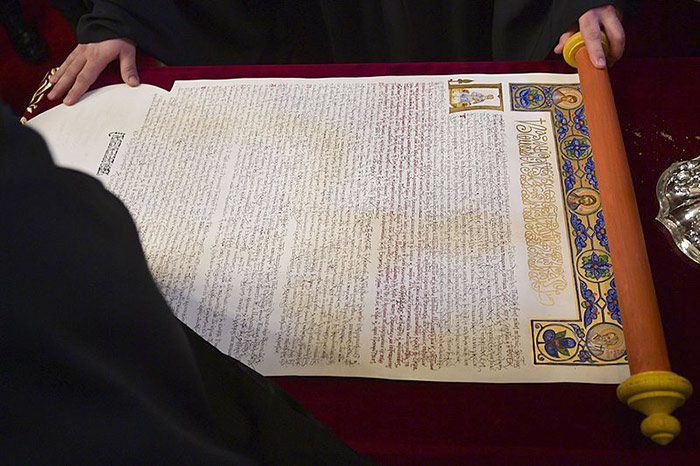Overall objective of the activities
Freedom of religion in Ukraine is upheld in a peaceful way, rights of religious minorities are upheld and safeguarded, and mutual understanding and non-violent dialogue between communities of different religious denominations is increased in the context of the recognition of an autocephalous Orthodox Church of Ukraine.
At the end of 2018-early 2019 PAX conducted a needs assessment (secondary sources analysis, in-depth interviews, roundtable discussion) which concluded that in Ukrainian society, which is facing pressure due to an ongoing armed conflict, the shrinking space between church and state spells a threat to the civil liberties of various faith communities. It challenges an already fragile social contract and a weak culture of acknowledging and constructively addressing conflict.
According to Gallup (2019), just 9% of residents of Ukraine have confidence in the national government, the lowest confidence level in the world for the second straight year. At the same time, churches and religious institutions remain among the most, if not the most, trusted by the society. Their role in facilitating civic activism as well as providing support for various forms of developmental and humanitarian assistance has been well documented by media and expert community.
Religious leaders and religious institutions can provide a platform for opposing sides to meet and use dialogue as a tool to deal with disagreements. With over 35.000 faith communities of some 50 different denominations as of 2019, Ukraine stands out as a country that embraces religious pluralism. Intersection of religion and secular, civic activities was noticeable during Euromaidan, with joint multi-confessional prayers becoming a significant marker of inclusion.
However, the armed conflict and recent developments in the domestic political arena (i.e. the presidential and parliamentary elections in 2019) have led to an alarming level of politicization and securitization of the religious sphere in the country. In the public discourse, national security started to be linked to the establishment of a ‘national church’. This is portrayed as a key element of successful nation-building and an important factor in counteracting Russia’s aggression (together with language and a strong army).
The political rhetoric following the act of granting autocephaly to the Orthodox Church of Ukraine has already led to discrimination against believers, while many commentators warn that Ukraine may soon become the enemy it tries to fight. Thus alluding to the state of freedom of religion in Russia. The rise of conservative/fundamentalist tendencies in the society, the weakening of religious pluralism and the rise of (religious) nationalism are challenges threatening a pluralistic, tolerant and democratic Ukraine.
Planned activities
- Through research and publications identify and systematize the key developments affecting freedom of religion and/or beliefs in Ukraine following the unification process of the Orthodox church.
- On the basis of research and information from partner network identify at least 5 communities that are deeply affected by identity-related conflict. In order to help these communities address the challenges, connect them to skilled and experienced dialogue facilitators (Peace Engineers). For more, please see A culture of dialogue and constructive engagement in Ukraine
- Develop and disseminate a manual that provides practical guidance for local authorities, religious leaders and community members how to protect freedom of religion or belief.
Contact
Andriy Korniychuk, Programme Manager Eastern Europe & Eurasia, korniychuk@paxforpeace.nl




